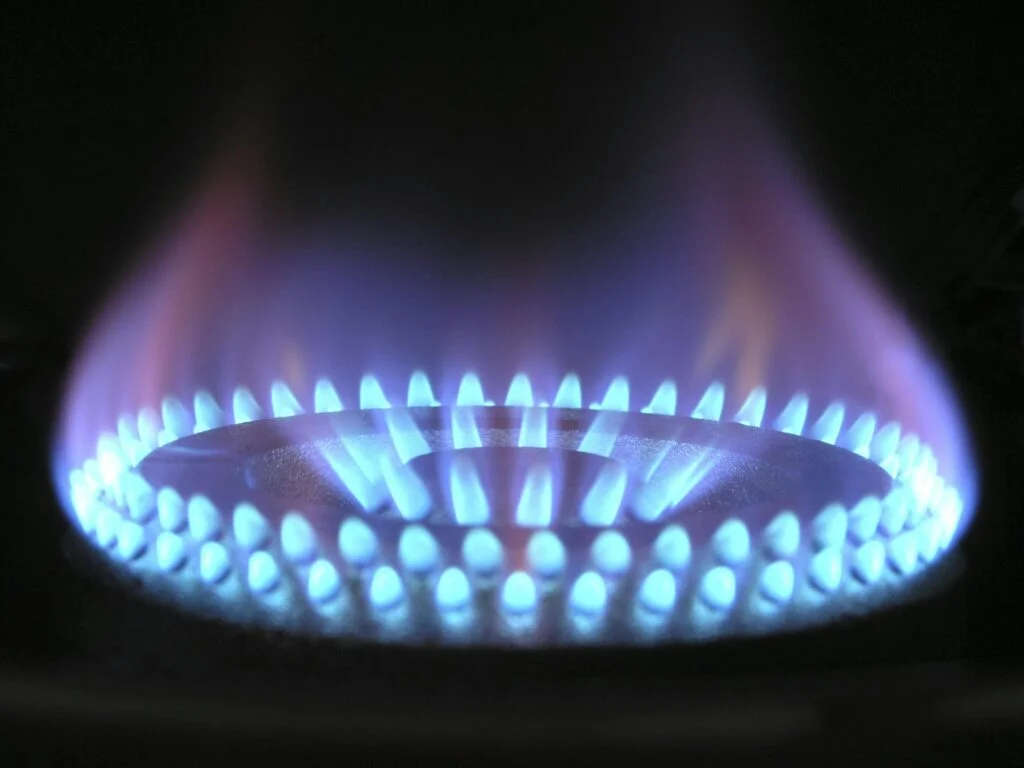When decorating your industrial kitchen, I believe many people face a rather difficult choice – choose gas or electric cooking equipment. Today we will list their respective advantages and disadvantages to facilitate your more intuitive comparison and provide you with reference suggestions to help you make the best choice for your restaurant or food service organization!
Advantages of gas industrial kitchen equipment
1. Lower operating costs
According to Eurostat data in 2023, the average household electricity price in the EU is 28.9€/KWh, and the average price of natural gas is 11.9€/KWh.
Take boiling 1L of water as an example. The heat required to raise the temperature of 1L of water by 1℃ under 1 atmosphere is 1kcal. Under standard atmospheric pressure, the heat required to heat from 15℃ to the boiling point of 100℃ is: 100-15=85kcal. The gas and electricity consumed are as follows:
Natural gas cost: Calculated based on the natural gas heat conversion rate of 80%, 85kcal/80%=106.25kcal=0.123569KWh of natural gas is consumed, and the natural gas cost generated is 0.123569KW h*11.9€/KWh=1.47€
Electricity cost: Based on a 90% heat conversion rate, 85kcal/90%=94.45kcal=0.109845KWh of electricity is required, resulting in an electricity cost of 0.109845KWh*28.9€/KWh=3.175€
In summary, the available natural gas cost is lower than the electricity cost
2. More suitable for large-scale cooking
Gas equipment is often the first choice for large-scale kitchens because it can withstand heavy use without overheating.
3. Faster heating
Gas equipment generally heats faster than electric equipment, which shortens cooking time and improves kitchen efficiency.

Disadvantages of gas industrial kitchen equipment
1. Higher installation cost
Gas equipment may require a more complicated installation process, and the combustion gases produced by gas equipment need to be properly discharged, so an additional ventilation system needs to be installed in the kitchen, which will result in higher upfront costs.
2. Limited temperature control
Gas equipment may not provide the same precise temperature control as electrical equipment, which may affect the quality of food.
3. Safety issues
Compared with electric equipment, gas equipment has a higher risk of fire or gas leakage and requires careful maintenance and monitoring.
Advantages of electric industrial kitchen equipment:
1. Lower upfront cost
Electric equipment is usually more affordable to purchase and install, does not require the installation of gas pipelines, and is plug-and-play, so it is an economical and convenient choice for many businesses.
2. Less energy loss
The energy loss of electricity is generally less than 10%, while the energy loss of natural gas is around 15%. This means that in the process of energy utilization, the loss of electric energy is smaller than that of natural gas, so in some occasions with high requirements for energy utilization efficiency, such as industrial production, choosing to use electric energy may be more energy-saving and efficient.
3. Easier to clean
Electric equipment is usually easier to clean and maintain than gas equipment, saving time and energy in the kitchen.
4. Safer
Electric equipment eliminates the risk of gas leaks and fires, providing a safer working environment for kitchen staff.

Disadvantages of electric industrial kitchen equipment:
1. Slower heating speed
Electric equipment may take longer to heat up than gas equipment, resulting in slower cooking time.
2. Higher operating costs
We have calculated above that the electricity cost to boil 1L of water is higher than the natural gas cost
In conclusion, the choice between gas and electric industrial kitchen equipment ultimately depends on your specific needs, budget and preferences. Before making a choice, carefully consider the pros and cons of each option and consult a professional to ensure that your kitchen is equipped with the best equipment for your business.
Reference materials:
《Eurostat: Electricity and gas prices to stabilize in 2023》
